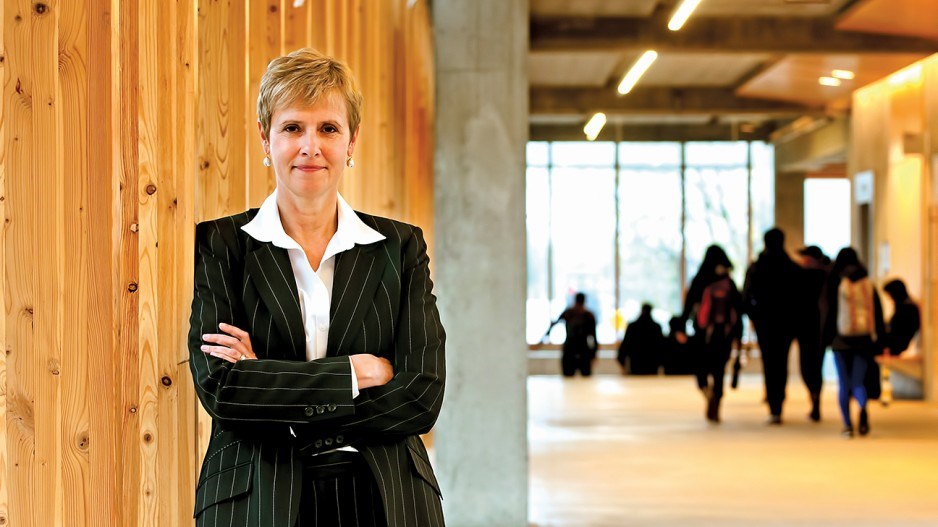A quiet Burnaby Mountain campus awaits Joy Johnson for at least her first semester overseeing Simon Fraser University, where the vast majority of students will be planted at home in front of screens to take in lectures and participate in discussions over Zoom.
“I had no idea that we'd be facing a global pandemic when I took up the role,” said Johnson, who takes over from Andrew Petter as SFU’s president September 1 after serving as vice-president of research since 2014.
“It has been challenging, that's for sure.”
Challenging for administrators, challenging for students, challenging for faculty and challenging for the technology needed to be deployed to facilitate remote learning.
When SFU examined the needs of students who’d be learning from home, administrators found notable gaps among many.
Some students didn’t have access to the WiFi capacity necessary for Zoom lectures and discussion groups, while others lacked the proper devices to even tap Zoom in the first place.
“We quickly created a fund to help supply equipment to our students,” Johnson said.
“We've been looking for computers that aren't being used, that we can share and trying to problem-solve on the ground, to make sure that our students are able to participate in investing in more online platforms, platforms like Zoom, and others to make sure that we have the technology on our end as well to offer this kind of education.”
Some students, such as those studying chemistry, will need to be in the classroom setting for lessons.
But Johnson said the reliance on technology to deliver education will undoubtedly change the dynamic that previously existed in the university environment, where students would attend lectures, raise their hands to ask questions or expect to be called upon on the spot to offer thoughts on a subject.
“Many of our faculty have not done online teaching before and so getting up to speed, providing them with the tools they need and the support they need is really important,” she said.
Tech companies in B.C. will also be facilitating some of the ongoing shifts in dynamics.
Nadia Tatlow, CEO of Victoria-based Shift (a Redbrick Technologies Inc. portfolio company), said there’s been an “huge uptick in sales” during the pandemic for the company’s technology, a desktop productivity app.
She said the need for the tech has been felt acutely among parents finding themselves juggling between working from home and facilitating learning for their kids when schools closed in the spring.
And when K-12 classes resume next month — with some students returning to class and others relying on remote options, depending on the jurisdiction — pressure will once again be on parents to manage their own work, their children’s learnings and everyone’s schedules.
“[We’re] trying to really help people decrease the grey area between their personal and professional life, which I think is important for everyone right now,” said Tatlow, whose company closed a $1 million seed round last winter.
The biggest silver lining she sees right now is how the pandemic is accelerating the adoption of technology.
“If you had told me a year ago that we would move all of the university to online teaching. I would say it's not possible,” Johnson said.
SFU’s classes start online September 7.




